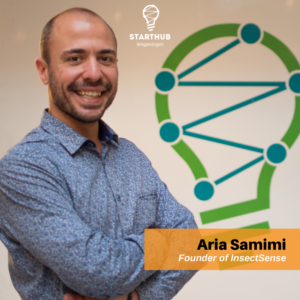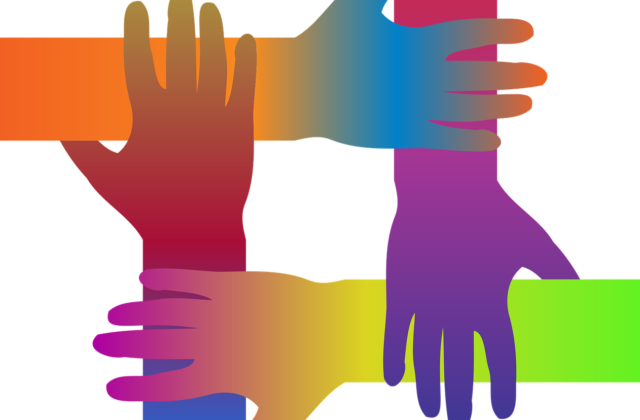Is your incubator inclusive (and why should you care about it)?
The last decade has seen increasing changes in work environments. The growing participation of women in different industries, the presence of disabled people, the extension of working age, the increase of international work mobility, and ethnic, cultural, and religious diversity. Also, instances for LGBTQI+ rights have confronted organizations with a needed reflection on these topics. To what extend is your incubator or accelerator affected by these developments?
Diversity in Incubation
The presence of such diversity should not become something that we worry about, escape, or deny. We should instead start to think about how to manage it. Academic research consistently points out the benefits of diversity management for organizations, such as in human resource management, creativity and innovation, marketing, branding, and customer relationship. All the main international and European policy-makers, together with big consulting companies, suggest that we should become aware of the issues and potential of diversity and inclusion in the workplace. What people should you engage in your incubator, and what kind of entrepreneurs should you attract and retain?
In this article, we specifically want to speak about the need for Dutch incubators to better think about the role of cultural and ethnic diversity. Many foreigners enter our country every year under a variety of visas and migratory channels: students attracted by the programs of our universities; asylum seekers and refugees; workers both in low-skilled manufacturing or service works; highly skilled expatriates in any knowledge domain; and entrepreneurs holders of start-up visa. In addition, second (or third) generation migrants might maintain different cultural backgrounds and ties to other places. Have you spent some time considering some possible opportunities and implications of having these diverse people collaborating with your incubator?
Migrant Entrepreneurs in The Netherlands
Migration brings about many social, cultural, and economic benefits, which should be fostered not only by policymakers or civil society organizations but also by private companies who could appropriate different competencies, skills, ideas, and networks. Just as an example: in the United States, a study showed that 55% of billion-dollar startups have an immigrant founder!
On the one side, migrant entrepreneurs (or aspiring entrepreneurs) are similar to local entrepreneurs: they need to grow their competencies, find money, design a viable business model, etc. However, on the other side migrant entrepreneurs have different needs for local entrepreneurs, for instance in mastering the local language (including/especially the entrepreneurship/business language in the local language), understanding the culture of doing business, and managing bureaucratic and regulatory environment of the host country, having the right networks in business and professional domain, or even facing racial, ethnic or other types of discriminations.

Iranian Start-up from Wageningen making headlines
In 2019 Aria Samimi came to Wageningen for its first-class research. After a half year research, he decided to start-up his company InsectSense at StartHub incubator. Now his company is making world headlines with their breakthrough research in early detection of Covid19 by trained bees.
Refugees, talents on the move
Over the last decade, many programs on support to migrant entrepreneurship have been launched by private and public incubators/accelerators, but also by NGOs or civil society organizations, to sustain migrants in developing an entrepreneurial mindset, business ideas, and start-ups. You might find some examples in the work for different target migrants by DeliteLabs, specifically with refugees by Forward Incubator, or with start-up visas by many facilitators.
However, as emerging from the research carried out by the project MIG.EN.CUBE, being “willing” to target migrant entrepreneurs doesn’t mean being “able” to do it. First, is the incubator really ready to approach diverse people – in terms of the internal “culture” of dealing with diversity and inclusion? To what extent can the staff display cultural understanding, ability to “translate” issues, and approach diverse needs due to their different national or cultural backgrounds, or exposure to international experiences? Second, is the incubation program specifically designed to “listen” and ready to find the right “fit” with migrants’ needs – for instance starting and growing trusted relationships with other actors in the ecosystem (e.g., impact finance, microcredit, welfare organizations, social enterprises)? Third, are the methods and materials used by the incubation program adapted or adaptable to different audiences – for instance for training materials, technical documents, pedagogical approaches (e.g., one-to-one vs. peer learning)?
We should start thinking more about the need to become an “inclusive” incubator – because inclusiveness is not only a matter of pro-social engagement but of strategic and competitive advantage for incubators and accelerators looking for exceptional talents.
How can incubators become inclusive practically?
There is no magic wand, but you could be part of the development of the first toolbox for inclusive incubators. You can immediately start getting engaged and become an active follower of the MIG.EN.CUBE project – which will design training toolkits and events to allow incubation professionals to better understand how to approach culturally diverse entrepreneurs in their programs. To do this, it would be of great importance that you participate in experimental research, led by the University of Bologna (Prof. Daniela Bolzani), and co-developed for the Netherlands with the University of Amsterdam and Impact Hub Amsterdam.
Follow this LINK to participate in this important study and signal your interest in further being in touch with the project team (migencube@unibo.it) (deadline: 6 September 2021). Together with DIA we will be organizing sharing sessions this fall to further develop those practical tools to improve cross-cultural communication and inclusivity in your organization.

